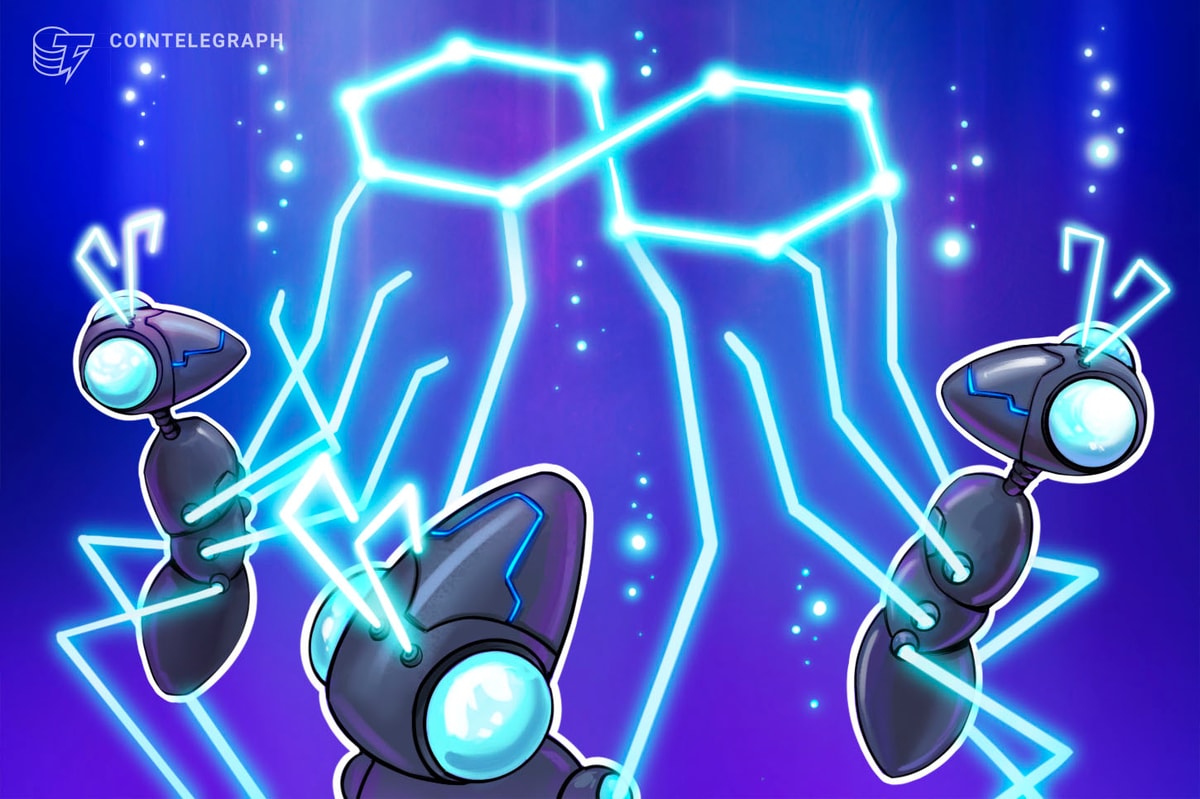
Buenos Aires, the capital of Argentina, is making a major move toward integrating its bureaucracy with blockchain technology. Starting in October, the city’s 15 million residents can access identity documents via a digital wallet, according to an announcement on Sept. 28.
The first documents to be available on-chain include birth and marriage certificates, along with proof of income and academic verification. The announcement notes that health data and payment management will be integrated in the future, and that a roadmap for rolling out the blockchain-based solution across the country will be defined by the end of 2023.
Behind the project infrastructure is QuarkID, a digital identity protocol built by Web3 firm Extrimian. QuarkID wallets are powered by zkSync Era, an Ethereum scaling protocol using zero-knowledge rollups (ZK-rollups). The technology allows one party to prove to another that a statement is true, without revealing any specific information about the statement itself.
¡Hola Buenos Aires! Welcome to the ZK Nation
Buenos Aires is teaming up with @Quark_ID to issue digital identification services to millions of citizens in the city, with zkSync Era serving as the anchor blockchain for the program.
Learn more: https://t.co/C2ogl1qobc
TL;DR… pic.twitter.com/H2doBrotvM
— zkSync ∎ (@zksync) September 28, 2023
“This is a monumental step towards a safer and more efficient future for government services in Latin America,” said Guillermo Villanueva, CEO of Extrimian.
Data stored within the wallets will be self-sovereign, enabling citizens to manage the delivery of their credentials when interacting with government, businesses, and other individuals. zkSync Era will act as the settlement layer for QuarkID, ensuring that each citizen holds the correct credentials.
The Argentine government and the City of Buenos Aires envision their digital identity framework to be a public good. According to Diego Fernandez, Buenos Aires’ secretary of innovation:
“With this development, Buenos Aires becomes the first city in Latin America, and one of the first in the world, to integrate and promote this new technology and set the standard for how other countries in the region should use blockchain technology for the benefit of their people.”
Argentine officials are investigating a similar initiative in the country, the digital ID project Worldcoin. In August, local authorities disclosed a probe over privacy concerns related to Worldcoin collection, storage and use of customer data.
Worldcoin is also under scrutiny in Europe and Africa since its global launch in July. Founded by Sam Altman, co-founder of OpenAI, the project collects retinal scans to verify users.
Magazine: Should you ‘orange pill’ children? The case for Bitcoin kids books
Read More: cointelegraph.com









 Bitcoin
Bitcoin  Ethereum
Ethereum  Tether
Tether  XRP
XRP  Solana
Solana  USDC
USDC  Dogecoin
Dogecoin  Cardano
Cardano  TRON
TRON  Lido Staked Ether
Lido Staked Ether  Wrapped Bitcoin
Wrapped Bitcoin  Sui
Sui  Hyperliquid
Hyperliquid  Wrapped stETH
Wrapped stETH  Chainlink
Chainlink  Avalanche
Avalanche  Stellar
Stellar  Shiba Inu
Shiba Inu  Bitcoin Cash
Bitcoin Cash  LEO Token
LEO Token  Hedera
Hedera  Toncoin
Toncoin  Monero
Monero  Litecoin
Litecoin  WETH
WETH  Polkadot
Polkadot  USDS
USDS  Bitget Token
Bitget Token  Wrapped eETH
Wrapped eETH  Binance Bridged USDT (BNB Smart Chain)
Binance Bridged USDT (BNB Smart Chain)  Pepe
Pepe  Pi Network
Pi Network  Ethena USDe
Ethena USDe  WhiteBIT Coin
WhiteBIT Coin  Coinbase Wrapped BTC
Coinbase Wrapped BTC  Aave
Aave  Bittensor
Bittensor  Dai
Dai  Uniswap
Uniswap  NEAR Protocol
NEAR Protocol  Aptos
Aptos  OKB
OKB  Jito Staked SOL
Jito Staked SOL  Ondo
Ondo  BlackRock USD Institutional Digital Liquidity Fund
BlackRock USD Institutional Digital Liquidity Fund  Cronos
Cronos  Ethereum Classic
Ethereum Classic  Tokenize Xchange
Tokenize Xchange